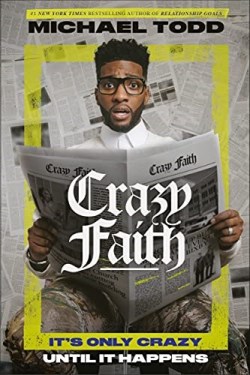Hidden Spring : The Spiritual Dimension Of Therapy (Reprinted)
$28.33
Increasingly pastoral counselors–along with psychotherapists and social workers–feel the need to integrate spirituality into their therapy. Thomas Hart’s pioneering and lucid book, here reissued and updated, equips them to do so. The problems that people bring to counseling always have a spiritual dimension, and this hidden spring can also figure in their healing. Hart, a therapist and theologian, shows how much richer therapy is when it calls attention to spirituality in addressing human struggles. He argues that psychology and spirituality unite in a common goal of healing, with growth, and fulfillment; while spirituality offers a larger, more ultimate framework of value, meaning, and power. Especially for those whose training tended toward the straightforwardly psychological, this book offers a manual for a richer, more meaningful counseling. Initial chapters discuss the presence of God in ordinary life, the relationship of the two disciplines, and the contours of healthy spirituality. Six concrete and illuminating case studies demonstrate how to integrate the two in practice.
in stock within 3-5 days of online purchase
SKU (ISBN): 9780800635763
ISBN10: 0800635760
Thomas Hart
Binding: Trade Paper
Published: August 2002
Publisher: Augsburg Fortress Publishers – 1517 Media
Print On Demand Product
Related products
-
Hollywood Commandments : A Spiritual Guide To Secular Success
$25.99DeVon Franklin, New York Times bestselling author of The Wait and prominent Hollywood producer, reveals that secular and spiritual success are not opposites. To have one, you need the other.
You can be wildly successful without losing your faith. In fact, your secular success will strengthen your faith if you allow it. Too often we believe that success in secular environments contradicts the core principles of faith, but the opposite is true: Your faith was designed to thrive in the secular world and to transform it as a result. You may never experience the true fulfillment you were created for until you pursue the secular ambitions in your heart.
New York Times bestselling author DeVon Franklin knows this to be true. In The Hollywood Commandments, the prominent Hollywood producer and spiritual success coach reveals 10 life-changing lessons picked-up from his over-twenty-year career in the entertainment business. You won’t learn these lessons in the church yet they will help you achieve an amazing life and thriving career that glorifies God. The Hollywood Commandments will help you:
–Identify how to use what makes you unique to propel your career.
–Overcome fear and build the courage to pursue new opportunities waiting for you.
–Gain the confidence to make important life decisions with greater peace and clarity.
–Negotiate the life and career advancement you deserve.No, you don’t have to work in Hollywood for this book to work for you, these “commandments” apply to every walk of life! If you are stuck, looking for the secrets to advance your career, or have a feeling there’s more to life, this book is for you.
Add to cart1 in stock
-
Women Of The Bible Speak
$25.99The women of the Bible lived timeless stories–by examining them, we can understand what it means to be a woman of faith.
People unfamiliar with Scripture often assume that women play a small, secondary role in the Bible. But in fact, they were central figures in numerous Biblical tales. It was Queen Esther’s bravery at a vital point in history which saved her entire people. The Bible contains warriors like Jael, judges like Deborah, and prophets like Miriam. The first person to witness Jesus’ resurrection was Mary Magdalene, who promptly became the first Christian evangelist, eager to share the news which would change the world forever.
In The Women of the Bible Speak, Fox News Channel’s Shannon Bream opens up the lives of sixteen of these Biblical women, arranging them into pairs and contrasting their journeys. In pairing their stories, Shannon helps us reflect not only on the meaning of each individual’s life, but on how they relate to each other and to us.
From the shepherdesses of ancient Israel who helped raise the future leaders of the people of God, to the courageous early Christians, the narrative of the Bible offers us many vivid and fascinating female characters. In their lives we can see common struggles to resist bitterness, despair, and pride, and to instead find their true selves in faith, hope, and love. In studying these heroes of the faith, we can find wisdom and warnings for how to better navigate our own faith journeys.
The Women of the Bible Speak outlines the lessons we can take from the valor of Esther, the hope of Hannah, the audacity of Rahab, and the faith of Mary. In broadening each woman’s individual story, Shannon offers us a deeper understanding of each, and wisdom and insights that can transform our own lives today.
Add to cart2 in stock (additional units can be purchased)
-
I Still Believe Small Group DVD Kit
$39.99The I Still Believe Small Group Kit combines a 5-episode DVD series, 35-day devotional journal, and thorough leader’s guide to serve as a five-week guided tour for small groups through the biblical response to commitment, sacrifice, grief, loss, and also God’s sovereignty and redemption. This kit comes as a ready-to-use package that makes it easy to implement small groups in your church or ministry.
Includes: Video Series, Leader’s Guide, and Study Journal
Add to cartin stock within 3-5 days of online purchase
















Reviews
There are no reviews yet.